TAPI TAPI
Tapping into ice cream memories
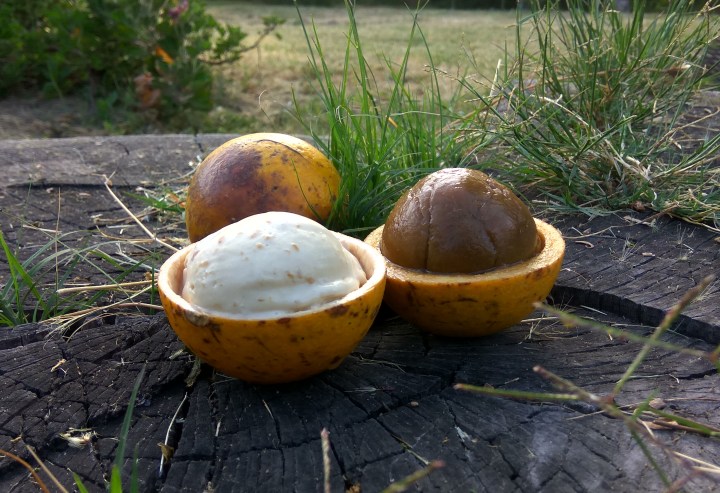
Tapi Tapi (Shona for ‘yum yum’) ice creams uses distinct flavours as a way of importing memories of childhood into the present day and creating conversations around that. Its flavours include roasted peanuts, maize, imphepho (a medicinal and fragrant plant), amatungulu (Natal plum), as well as other fruits common in ice cream such as gooseberry, saffron, and granadilla.
The mielie roasted over a fire in a barrel, long conversations under the shade of a mango tree, climbing the sturdy peach tree to pick the juiciest fruit (forgetting momentarily that it is the same tree from which the swatch for your hiding will come), enjoying a filling meal of phuthu and amasi on a scorching day – and not just the store-bought cartons but the home-made one whose tartness draws out the flavour of the maize, or sour sorghum porridge on a cold morning before school. Memories of family gatherings and love, laughter and comfort are all woven together with food.
Tapiwa Guzha is the founder of Tapi Tapi desserts in Cape Town. He is a formally trained scientist embracing this creative aspect. Tapi Tapi is dedicated to the celebration of African food and curating the nutritional, medicinal, functional and ritual significance of food and produce on the continent.
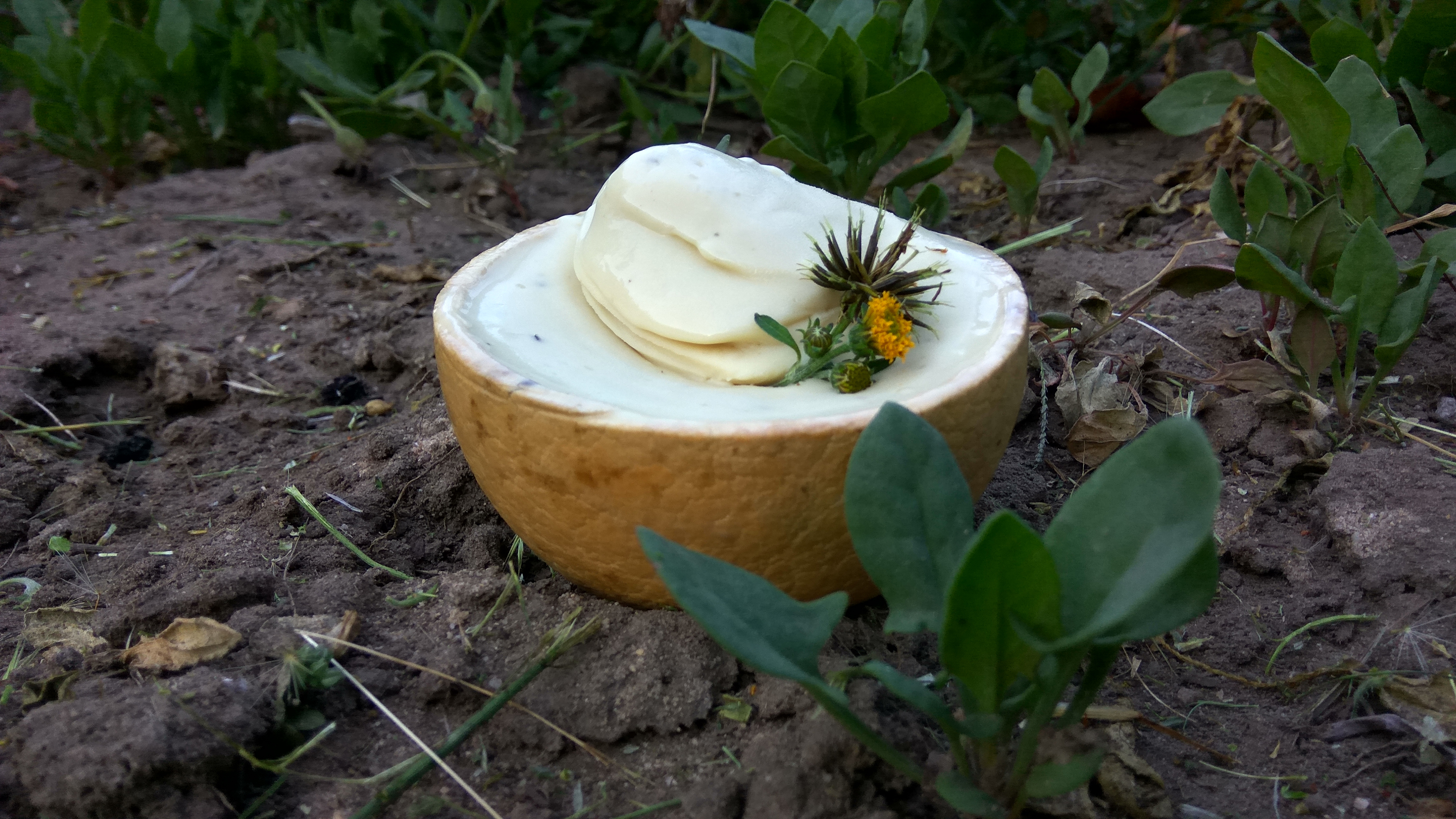
Blackjack and olive oil gelato. Photos: Tapiwa Guzha
Tapi, which in Shona means “yum yum” when referring to sweet food, uses distinct flavours in ice creams, popsicles and other types of foods to encourage conversations around food. There are a variety of flavour profiles on the menu and my sweet tooth and I are here for it. The founder, Tapiwa Guzha, invites people to blind-test a range of desserts and guess what flavour you are eating. You take a spoonful, swirl it around the tongue, smell the flavour, then (most likely) repeat until you guess the flavour or run out of ice cream. Expect to be temporarily perplexed as you try to decipher the layers of flavours in each scoop.
When the flavours are announced, many are familiar to me, but not when prepared like this. Flavours like roasted peanuts, maize, imphepho, cayenne pepper, oxheart tomato and easier options of gooseberry, saffron, and granadilla. (Imphepho, traditionally, is dried and then burnt as incense and is believed to be a way of communicating with one’s ancestors.)
The experience of tasting these products is just mindblowing to me. Still, Tapi Tapi is more than just the exploration of various flavour combinations.
“At the core of it,” says Tapiwa, “it is not really about ice cream or African flavours. It is about food culture, heritage around food, and the rituals around food. (A way) to claim back some of the value in our own things.”
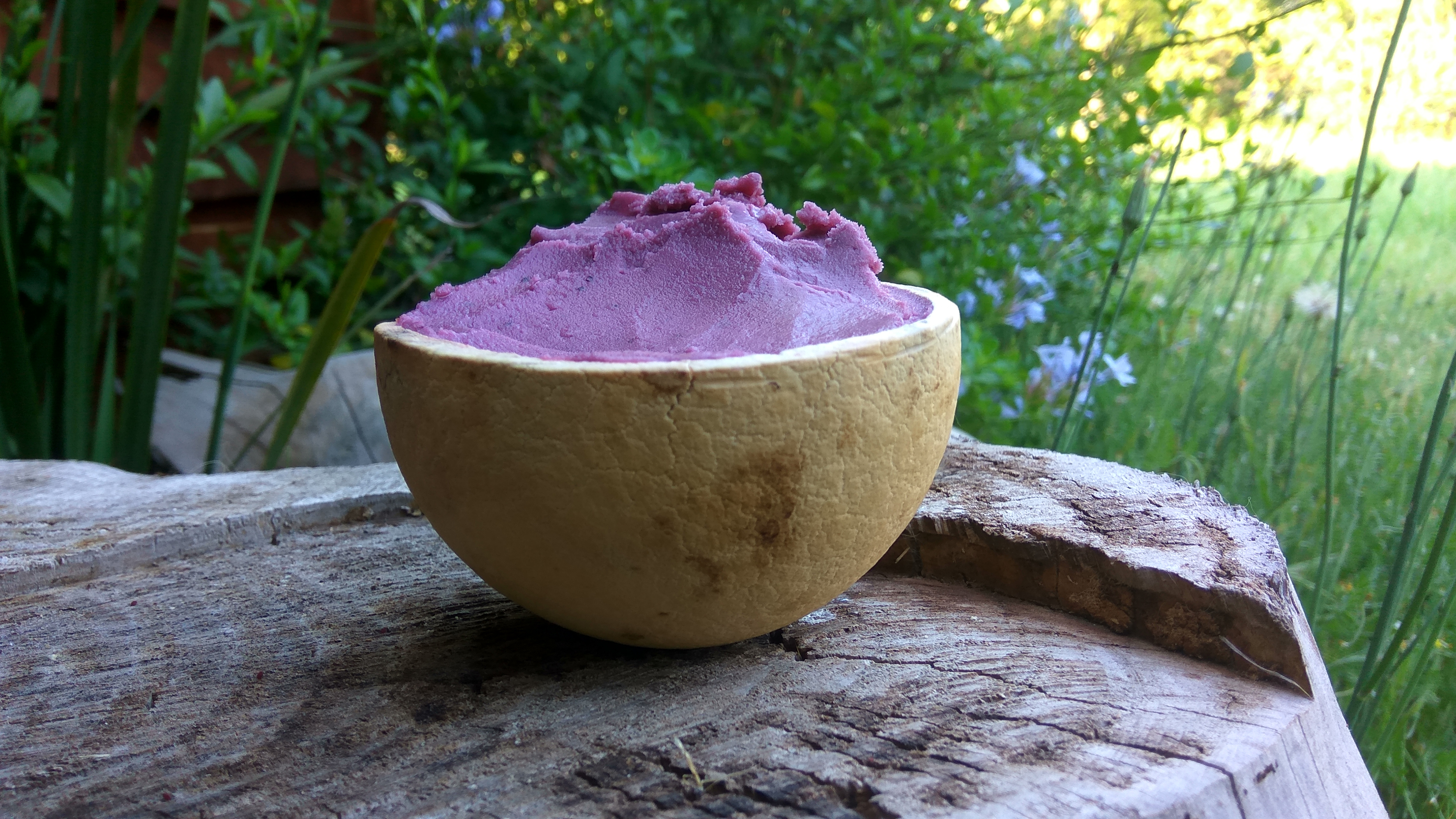
Mulberry and black pepper gelato. Photo: Tapiwa Guzha
Our food should be everywhere, not an anomaly or trend, because “it is food from here, and we are here. It should just be normal part of life”.
One way that reminds us of this is through collaborative projects. Finding people with similar values around growing and using ingredients in a sustainable way, sharing knowledge and stories that educate, re-educating each other and cooking on outside flames where secret ingredients were discovered, kept and ultimately passed down, all in the name of community and family.
I was intrigued by what kind of conversations Tapi Tapi would spark in my circle. I thought it would be around the larger issues of the sustainable food resources but, surprisingly, it was the idea of taking ingredients that our grandmothers used in a certain way and turning them on their head by preparing them in a completely different way. That’s not how my grandmother made it. No, I don’t want to try that. Wait, what? We’re eating incense now?
Human beings are complex in that way; on the one hand we are not celebrating enough, and on the other, fiercely protective of memories. I know I can be guilty of this sometimes and I have some foods that require a mental shift from me when they are used in a creative way. I chastise myself because it seems so boring not to try a “maize ice cream cone” or “Imphepho, olive oil and chimodho ice cream” or “pumpkin and peanut butter”.
In reality, there’s always room for evolving the way we prepare ingredients. Culture is not static, it is continuously evolving, and the culture of food should be no different.
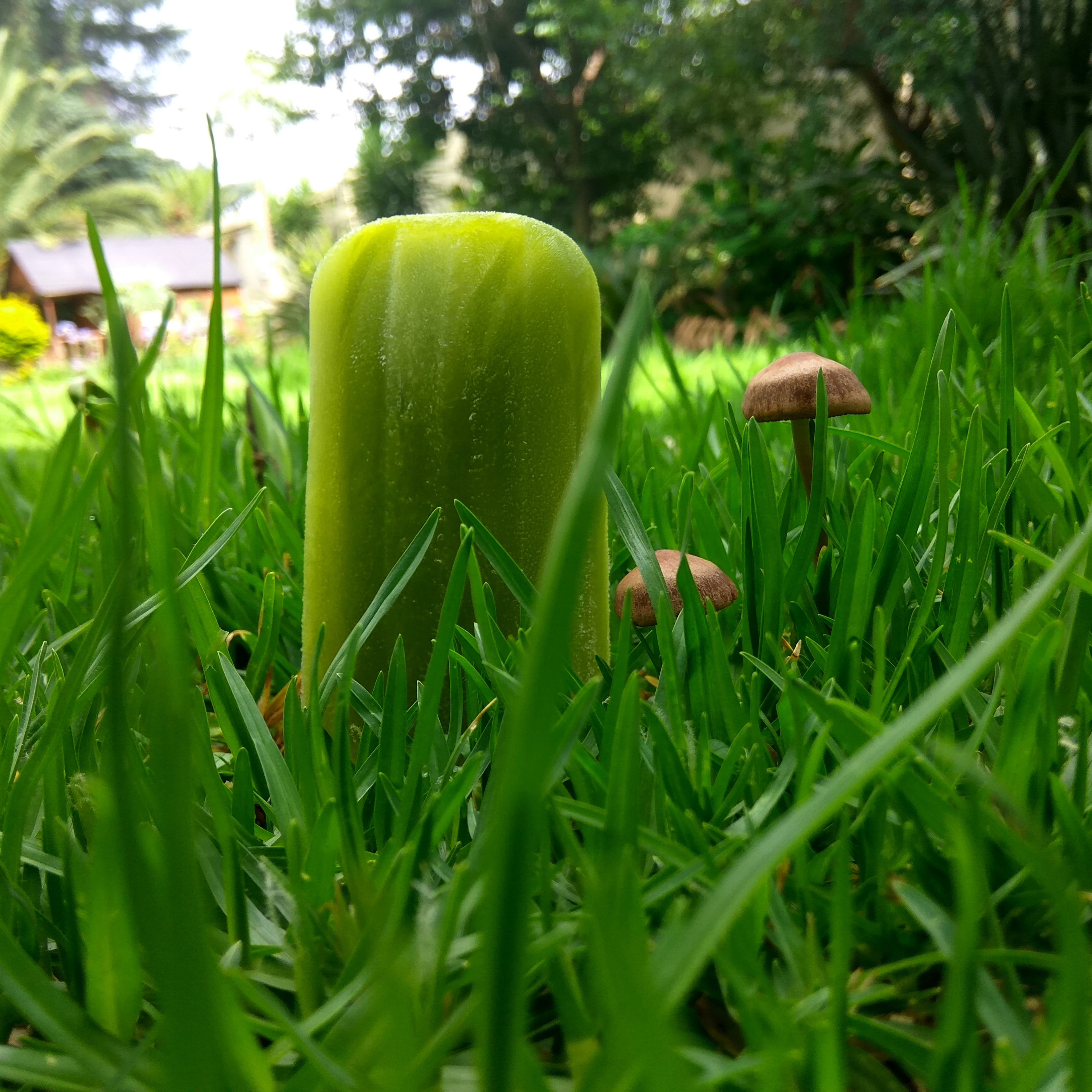
Horned cucumber, fennel and tamarind popsicle. Photo: Tapiwa Guzha
A few years ago, while living in South Korea, a friend came to visit me from South Africa. The only thing I asked her to bring along with her was 500g Maize Meal for my porridge, the little bit of comfort and home I needed. Concerned that it would spill in her bag, she wrapped it in newspaper and boarded her flight. At customs, she was pulled aside by an officer and was asked to open her bag.
“What is this?” they demanded, pointing at the suspicious brick of powder in her bag. She innocently replied, “It is my food.” After a brief consultation with the other officers and some rather apprehensive glances her way, they nodded and sent her through to the gates.
Even thousands of kilometres away, I longed for some comfort foods. Yet, despite it being this comforting source, our foods in South Africa have often taken a back seat in everyday life. In the hustle and bustle of life our relationship with food has been the casualty. Cooking has become more solitary; ingredients store-bought with preservatives, and often the local take away spot is an easy option.
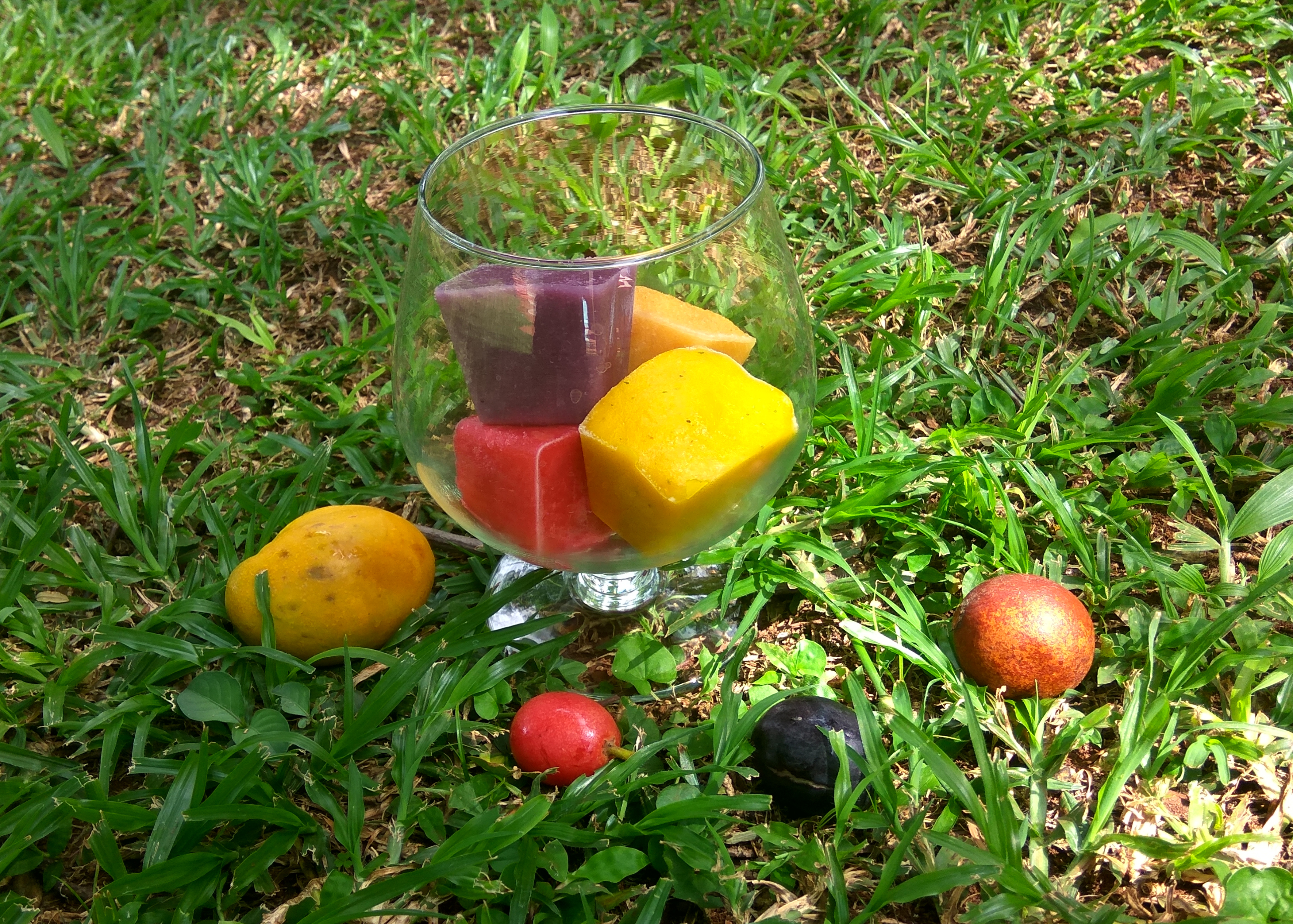
Tapiwa used wild local fruit to create sorbet for a tasting experience, while on visit home in Zimbabwe. The wild fruit from left to right: mango, tsvenzva, maboo and mazhanje. Photo: Tapiwa Guzha
This should not be the case, but things are looking up as the pendulum is increasingly swinging back through the maze, with ventures like Tapi Tapi desserts.
Tapiwa Guzha is eloquent on the subject:
“One of the most amazing things I’ve seen so far, even if some of the flavours are contentious, the moment you mention what is in the ice cream, particularly at a tasting event, when people see something so ordinary in their lives used in such a different way, or seeing something they may consider as mundane or pedestrian being celebrated like this, that’s when you realise people have been craving and waiting for that representation for a really long time – and they weren’t even aware that it was missing,” he says.
“You’re suddenly aware that you’ve been missing something that you weren’t aware at all that you were… It does something for the soul to feel heard even though you were not crying out to be heard.”
Back at international customs, my friend had noted: “It is our food. We can just make whatever magic comes along at that moment.” DM
Tapi Tapi is based in Cape Town. For information on its deliveries and events, contact Tapiwa 076 914 5614 or find them on Instagram _tapi_tapi.




 Become an Insider
Become an Insider